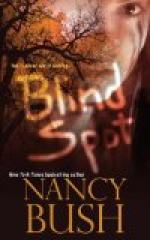“And that’s all that I remember—from this side.” [Footnote: Note.—In justice to Mr. Watson, the present writers have thought it best at this stage to transpose the story from the first to the third person. Any narrative, unless it is negative in its material, is hard to give in the first person; for where the narrator has played an active, positive part, he must either curb himself or fall under the slur of braggadocio. Yet, the world wants the details exactly as they happened; hence the transposition. Editors.]
Watson opened his eyes.
The first thing was light and a sense of great pain. There was a pressure at the back of the eyeballs, a poignant sensation not unlike a knife-thrust; that, and a sudden fear of madness, of drivelling helplessness.
The abrupt return of consciousness in such a condition is not easy to imagine. After all he had gone through, this strange sequel must have been terribly puzzling to him. He was a man of good education, well versed in psychology; in the first rush of consciousness he tried, as best he could, to weigh himself up in the balance of aberration. And it was this very fact that gave him his reassurance; for it told him that he could think, could reason, could count on a mind in full function.
But he could not see. The pain in his eyeballs was blinding. There was nothing he could distinguish; everything was woven together, a mere blaze of wonderful, iridescent, blazing coloration.
But if he could not see, he could feel. The pain was excruciating. He closed his eyes and fell to thinking, curiously enough, that the experience was similar to what he had gone through when upon learning to swim, he had first opened his eyes under the water. It had been under a blazing sun. The pain and the colour—it was much the same, only intensified.
Then he knew that he was very tired. The mere effort of that one thought had cost him vitality. He dropped back into unconsciousness, such as was more insensibility than slumber. He had strange dreams, of people walking, of women, and of many voices. It was blurred and indistinct, yet somehow not unreal. Then, after an unguessable length of time—he awoke.
He was much stronger. The lapse may have been very long; he could not know. But the pain in his eyes was gone; and he ventured to open the lids again in the face of the light that had been so baffling. This time he could see; not distinctly, but still enough to assure him of reality. By closing his eyes at intervals he was able to rest them and to accustom them gradually to the new degree of light. And after a bit he could see plainly.
He was on a cot, and in a room almost totally different from any that he had ever seen before. The colour of the walls, even, was dissimilar; likewise the ceiling. It was white, in a way, and yet unlike it; neither did it resemble any of the various tints; to give it a name that he afterward learned—alna—implies but little. It was utterly new to him.




